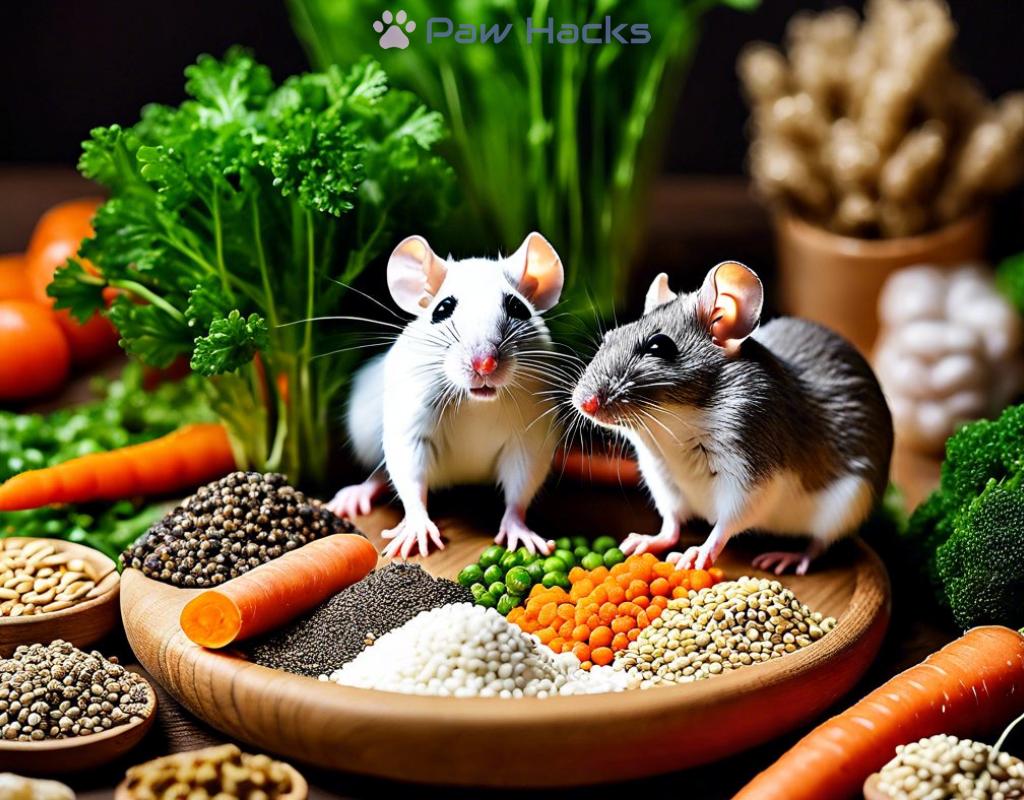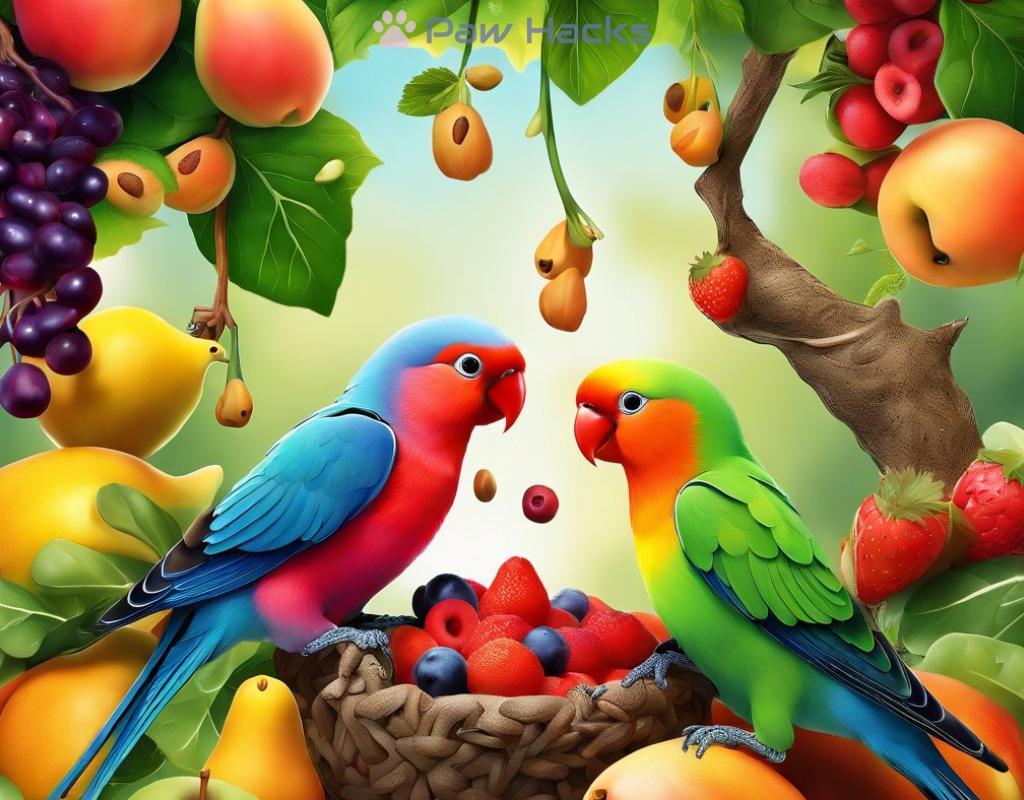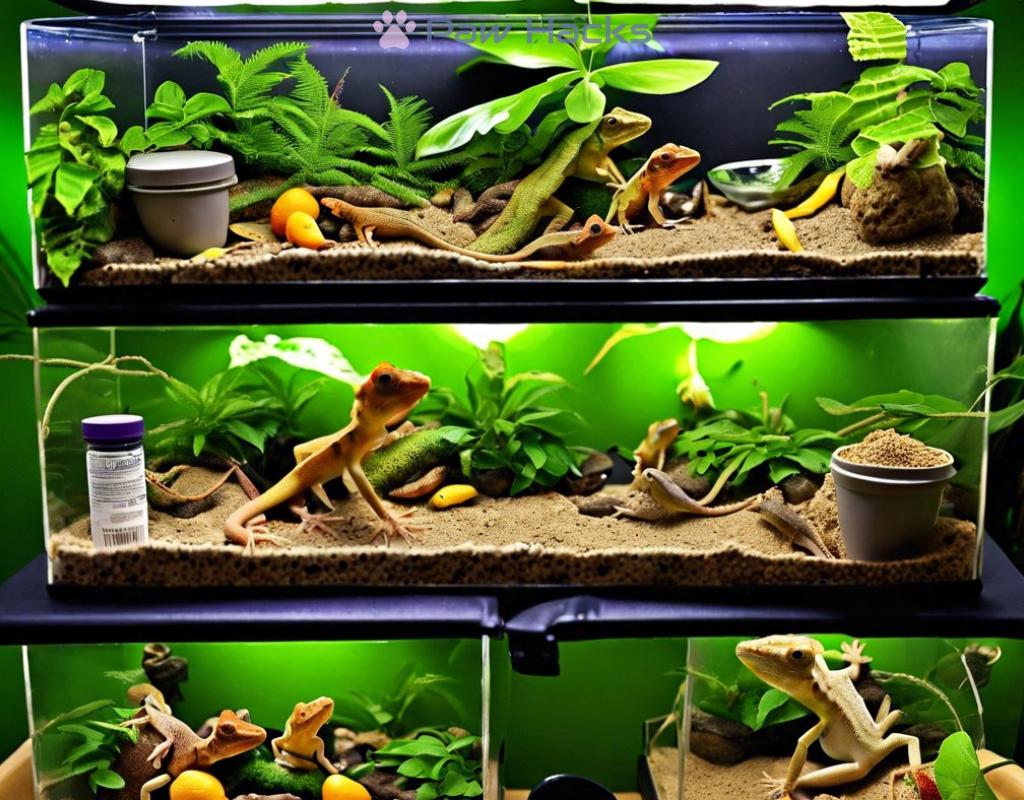Feeding Guidelines for Pet Mice
Essential Nutrients: What Your Pet Mouse Needs to Thrive
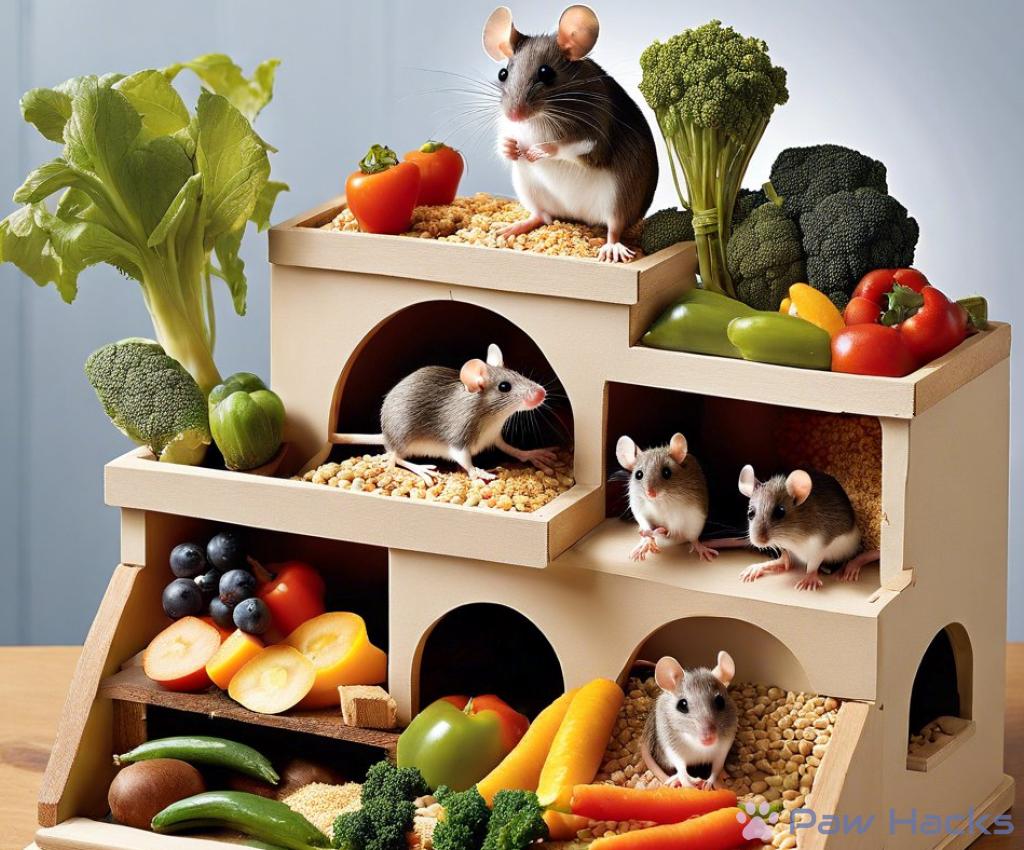
Understanding the Basics of Mouse Nutrition
Just like any other pet, mice require a balanced diet to live a happy and healthy life. A pet mouse’s food choices can significantly affect its overall well-being and longevity. It’s essential to provide your little friend with the right nutrients to ensure they thrive. Let’s explore the vital elements that should be included in your pet mouse’s diet.
Key Nutrients for a Healthy Diet
Providing a well-rounded diet is crucial for your mouse’s health. Here are the core nutrients your pet needs:
- Proteins: Essential for growth and repair of tissues.
- Carbohydrates: The primary energy source that keeps your mouse active.
- Fats: Necessary for healthy skin and fur, as well as energy reserves.
- Vitamins: Important for metabolic processes, immune function, and overall health.
- Minerals: Essential for bone health and various bodily functions.
Each of these nutrients plays a specific role in your mouse’s health, and it’s important to feed them a balanced mix.
Constructing the Perfect Diet
When it comes to feeding your pet mouse, variety is key! Here’s a simple table that outlines the ideal proportions of various food categories:
| Food Category | Percentage of Diet |
|---|---|
| Commercial Mouse Food | 60% |
| Fresh Vegetables | 20% |
| Fruits | 10% |
| Treats (seeds, nuts) | 10% |
By following these guidelines, you can ensure your pet mouse receives all the essential nutrients it needs to thrive. Remember, a happy mouse is a healthy mouse!
The Perfect Diet: Balancing Seeds, Grains, and Fresh Foods
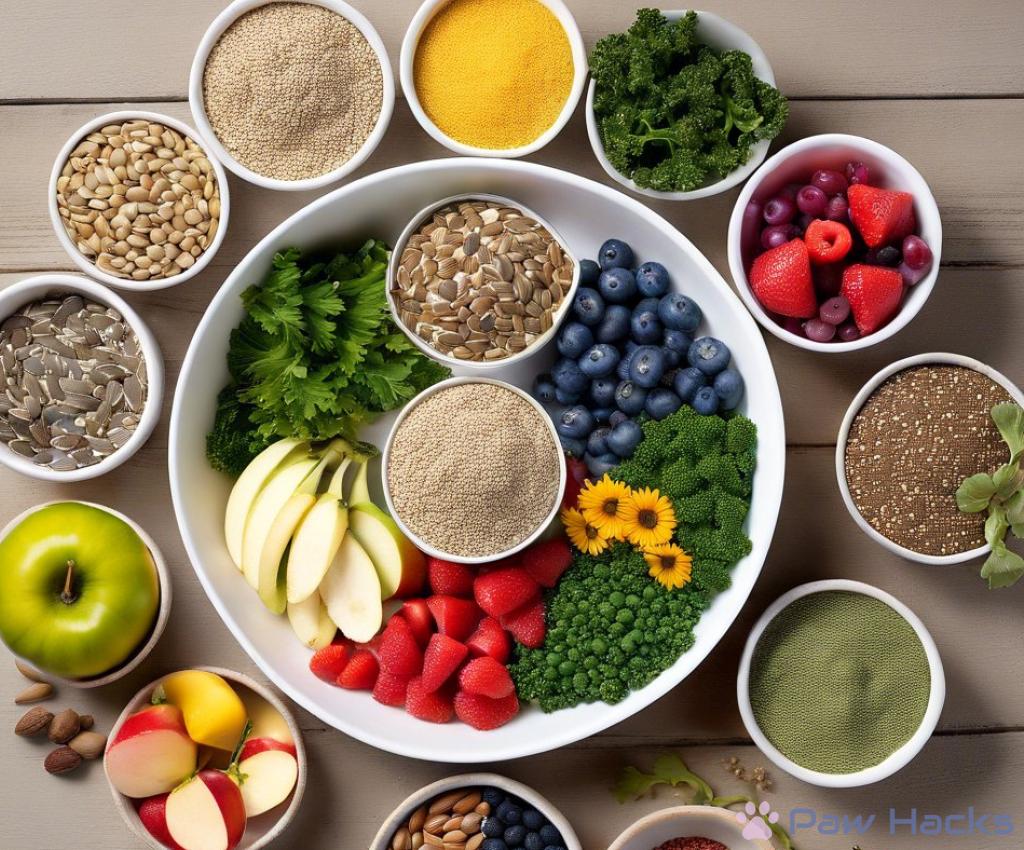
Understanding the Importance of a Diverse Diet
When it comes to feeding your pet mouse, a diverse diet is not just a luxury; it’s a necessity. Mice are naturally foragers, and they thrive on a variety of foods that mimic their wild diet. By providing a blend of seeds, grains, and fresh foods, you can ensure your furry friend receives an array of nutrients that support their health and vitality. Let’s delve into how to achieve that perfect balance.
Seeds and Grains: The Energy Powerhouses
Seeds and grains serve as vital components of your pet mouse’s diet, providing essential carbohydrates and fats that fuel their energetic lifestyle. However, not all seeds and grains are created equal. Opt for high-quality, organic options to maximize their nutritional value. Here’s a quick overview of some beneficial seeds and grains:
- Oats: Great source of fiber and energy.
- Sunflower Seeds: Packed with healthy fats but should be given in moderation due to their high-calorie content.
- Millet: A nutritious grain that is easy for mice to digest.
- Brown Rice: A wholesome grain that provides essential vitamins.
Incorporating these ingredients into your mouse’s diet will not only keep them energized but also contribute to their overall well-being.
Fresh Foods: Nature’s Vitamins
Fresh fruits and vegetables are nature’s way of providing essential vitamins and minerals. While they should only make up a portion of your mouse’s diet, they are crucial for optimal health. Here are some safe options to consider:
- Leafy Greens: Spinach and kale are excellent choices, providing important nutrients.
- Carrots: Rich in beta-carotene, promoting good vision and skin health.
- Apples: A sweet treat that offers hydration and fiber.
- Broccoli: Full of vitamins and beneficial for digestion.
When introducing fresh foods, ensure they are washed thoroughly and chopped into small, manageable pieces. This not only makes it easier for your pet to eat but also prevents choking hazards.
Treats and Snacks: Healthy Options for Your Furry Friend
Treats and snacks are a delightful way to bond with your pet mouse while also providing them with additional nutrients. However, not all treats are created equal, and it’s important to choose options that contribute to their health rather than detract from it. By understanding which snacks are beneficial, you can ensure your little companion enjoys tasty rewards without compromising their well-being.
Choosing the Right Treats
When selecting treats for your pet mouse, focus on natural ingredients that complement their regular diet. Avoid processed snacks high in sugars and unhealthy fats. Instead, consider the following healthy options that can be offered in moderation:
- Fresh Fruits: Small pieces of banana, blueberries, or strawberries can be a delightful treat, providing essential vitamins and hydration.
- Vegetable Nibbles: Carrot sticks, cucumber slices, or bell pepper bits offer crunchiness and vital nutrients.
- Whole Grains: A few unsweetened whole grain cereals or oats can give them a satisfying crunch.
- Nuts and Seeds: Unsalted and unflavored nuts, such as almonds or walnuts, can be given occasionally as a protein-rich treat.
Portion Control: The Key to Healthy Treating
While it’s tempting to shower your pet mouse with treats, moderation is crucial. Too many snacks can lead to obesity and other health issues. A good rule of thumb is to offer treats only as 10% of their total daily diet. This ensures they receive the health benefits without the risk of overindulgence.
In addition, always introduce new treats gradually. Monitor your mouse’s reaction to different foods to identify any allergies or digestive issues. A little patience goes a long way in keeping your furry friend happy and healthy.
The Bonding Experience of Treat Time
Snack time can be a wonderful opportunity to bond with your pet mouse. Engaging them during treats can stimulate their minds and provide enrichment. Consider using treat balls or hiding treats in their bedding to encourage foraging behaviors, mimicking their natural instincts. This not only makes treat time fun but also supports their physical and mental well-being.
Hydration Matters: Keeping Your Mouse Well-Watered
Understanding the Importance of Hydration
Just as food is essential for your pet mouse’s health, so is clean and fresh water. Many pet owners may underestimate the significance of hydration, but water is vital for nearly every bodily function in your mouse. It aids in digestion, nutrient absorption, and helps regulate body temperature. Without proper hydration, your little friend may face serious health risks, including dehydration, which can lead to lethargy and even organ failure.
How Much Water Does Your Mouse Need?
Determining the exact amount of water your pet mouse requires can be challenging, as it often varies with diet, temperature, and individual activity levels. Generally, a mouse should have access to fresh water at all times. On average, a mouse consumes about 5-10 ml of water daily, but this can increase depending on factors such as heat or diet changes.
When feeding your mouse a dry diet, like pellets or grains, it’s crucial to ensure they are drinking enough to offset the lack of moisture in their food. Mice that consume a higher percentage of fresh fruits and vegetables may drink less, as these foods provide additional hydration. However, it’s still essential to monitor their water intake to ensure they remain well-hydrated.
Providing Water: Best Practices for Your Mouse
Choosing the right method to provide water can significantly influence your mouse’s hydration habits. There are two primary ways to offer water: bowls and water bottles. Both options have their pros and cons. For instance, water bottles are less prone to contamination and keep water clean, while bowls allow mice to drink at their own pace.
Regardless of the method you choose, it is critical to refresh the water daily and clean the containers regularly to prevent the growth of bacteria. Additionally, look for signs of dehydration in your mouse, such as sunken eyes, dry skin, or lethargy. If you notice any of these symptoms, consult your veterinarian immediately.
In conclusion, keeping your pet mouse well-watered is a vital aspect of their care. By ensuring they have access to fresh water and monitoring their hydration levels, you can help promote a healthy and happy life for your furry companion.
Common Feeding Mistakes: What to Avoid for Optimal Health
Feeding your pet mouse a balanced diet is crucial for their overall well-being. However, many pet owners inadvertently make mistakes that can compromise their furry friend’s health. Understanding these common pitfalls is the first step towards providing the best care for your mouse. Below, we explore frequent feeding errors and how to avoid them.
Overlooking Nutritional Balance
One of the most significant mistakes owners make is providing an unbalanced diet. While it may be tempting to focus solely on one type of food, such as seeds or fruits, your mouse requires a diverse range of nutrients. A lack of variety can lead to deficiencies or excesses of certain nutrients, negatively impacting their health. To ensure your pet mouse receives adequate nutrition, it’s essential to adhere to the 60/20/10/10 guideline:
| Food Category | Recommended Percentage |
|---|---|
| Commercial Mouse Food | 60% |
| Fresh Vegetables | 20% |
| Fruits | 10% |
| Treats (seeds, nuts) | 10% |
Ignoring Portion Control
It’s easy to overindulge your pet mouse with treats; however, moderation is key. Feeding them excessive amounts of high-calorie snacks can lead to obesity and related health issues. Establish clear guidelines for treat portions and stick to offering treats as no more than 10% of their daily intake. This practice will help maintain a healthy weight and prevent potential health complications.
Neglecting Fresh Water Availability
While food is critical, water is equally vital for your mouse’s health. Many owners forget to provide fresh water daily or fail to monitor its cleanliness. Always ensure your mouse has access to clean water and change it regularly to prevent bacteria buildup. Dehydration can lead to severe health issues, so make hydration a top priority in your feeding routine.
By avoiding these common feeding mistakes, you can significantly enhance your pet mouse’s quality of life. A well-balanced diet, portion control, and consistent hydration are essential elements that will lead to a happier and healthier companion.
Share this content:
